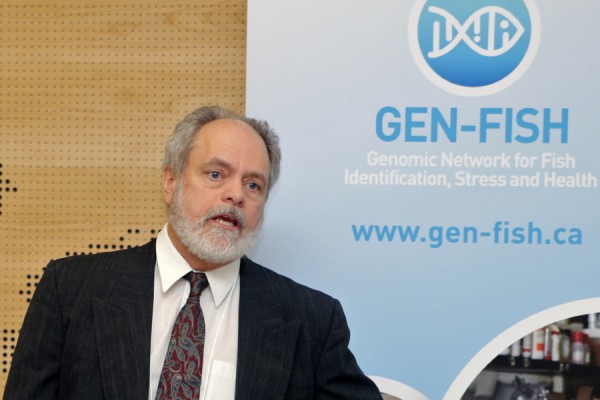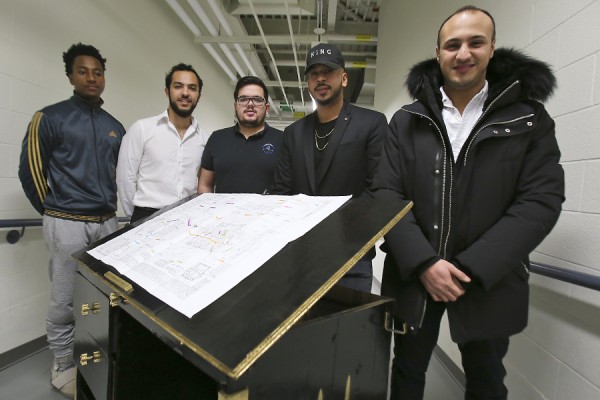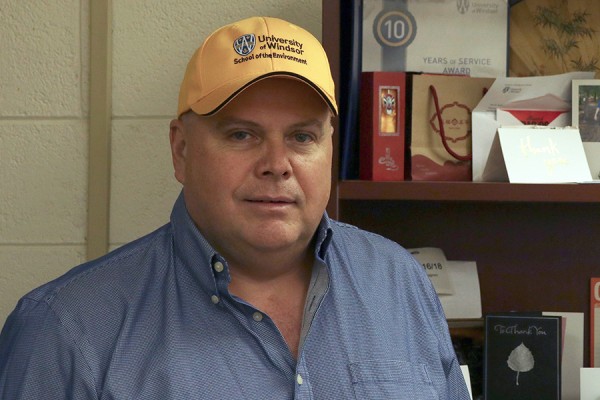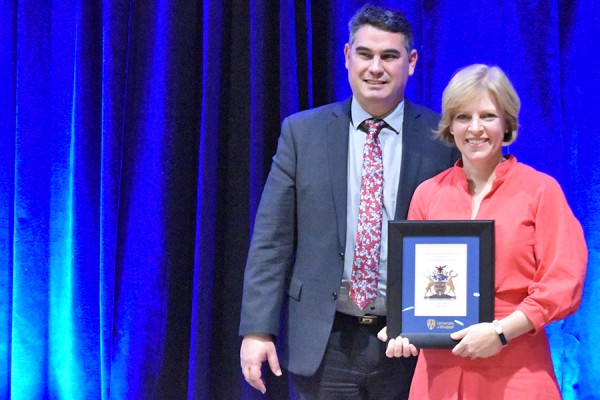 Daniel Heath is a leader of the Genomics Network for Fish Identification, Stress and Health.
Daniel Heath is a leader of the Genomics Network for Fish Identification, Stress and Health.
Monday marked the official launch of a genome research project that will help ensure the sustainability of freshwater fish stocks in Canada for generations to come.
Researchers from across the nation gathered at UWindsor’s Great Lakes Institute for Environmental Research Monday for the introduction of GEN-FISH, the Genomics Network for Fish Identification, Stress and Health. The goal of GEN-FISH is to make it easier and less expensive for governments and groups to manage and conserve freshwater fish stocks.
“We are here today to mark a truly momentous occasion,” said UWindsor president Robert Gordon. “Around the world, freshwater fish are under threat.”
The toolkits GEN-FISH researchers are developing will make Canada a world leader in the complete and accurate assessment of freshwater fish stocks, Gordon said: “It’s really a game-changer.”
GEN-FISH has received $9.1 million in funding from Genome Canada and Agriculture and Agri-food Canada, with additional financial support from provinces, universities and other partners. The project, led by the University of Windsor, involves 23 researchers from 13 academic institutions. It’s the first UWindsor project funded by Genome Canada.
Researchers will develop a suite of procedures to identify species and monitor the stressors fish are facing based on gene expression. They will also develop web-based resources and software to help users monitor and react to threats.
The project will rely heavily on environmental DNA. Daniel Heath, an integrated biology professor at GLIER, is a pioneer in the collection and analysis of water to identify all the species that exist in the ecosystem from which the water sample was drawn.
More traditional techniques involve capturing fish and testing them — not ideal for at-risk species, Dr. Heath explained. Environmental DNA is less invasive and more comprehensive.
Heath is leading the genome project together with Margaret Docker of the University of Manitoba and Steven Cooke of Carleton University. Other UWindsor researchers involved include Hugh MacIsaac, Trevor Pitcher, Christina Semeniuk, Oliver Love, Amy Fitzgerald, Phil Karpowicz, and Dennis Higgs.
Canada is home to more than two million lakes and 8,500 rivers. Freshwater fish represent an industry worth more than $4 million in Canada.
Ryan Lauzon, fisheries assessment biologist of the Chipppewas of Nawash First Nation, stressed the importance of freshwater fish to Indigenous peoples for commerce, culture, and food.
—Sarah Sacheli






